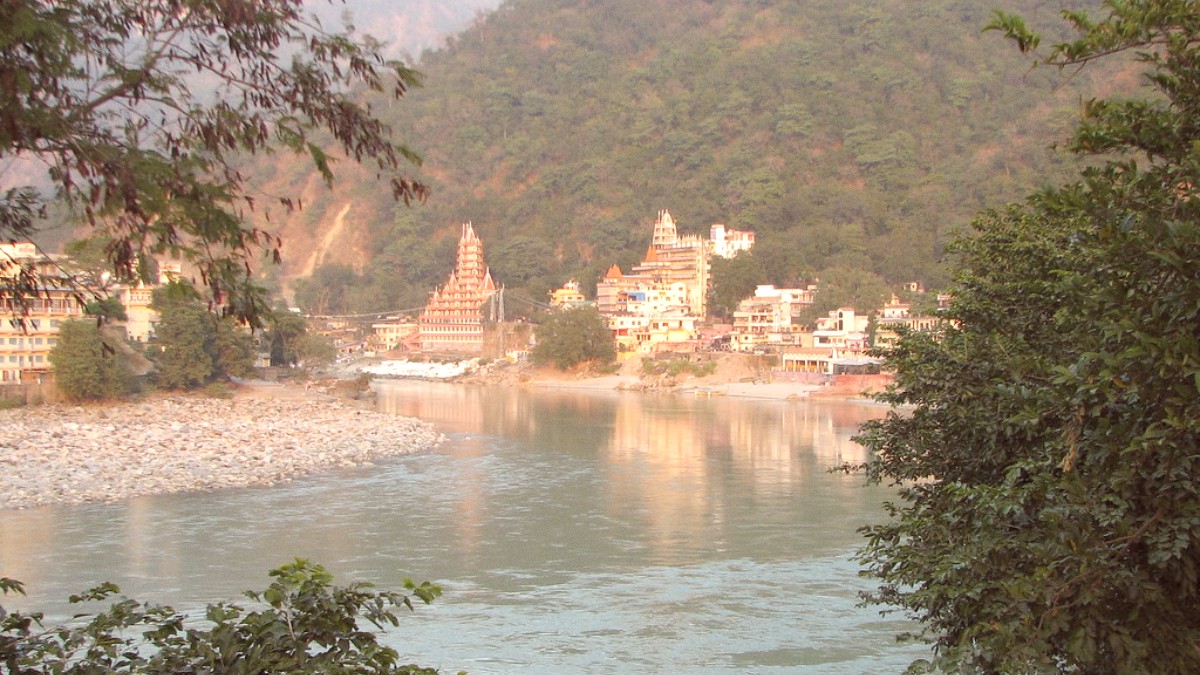
Uttarakhand Uttaranchal, India
Rishikesh is a holy city and a major pilgrimage destination for Hindus. Because of this, it is predominantly Vegetarian. Alcohol and non-vegetarian food are generally not served or consumed openly, especially in the main spiritual zones. This custom upholds the sanctity of the area.
The cuisine is heavily influenced by North Indian flavors. It emphasizes fresh, seasonal vegetables, a variety of lentils, paneer (Indian cheese), and wheat-based breads like roti and chapati.
While the core cuisine is North Indian vegetarian, cafes catering to tourists, especially in Tapovan and Lakshman Jhula, have a wider range of "international" vegetarian dishes.
You will find Italian (pasta, pizza), Israeli (hummus, falafel), Continental, and Tibetan (momos) options alongside traditional Indian meals. This variety mirrors the diverse international community in Rishikesh.
Traditionally, people in India eat food with their right hand. Using cutlery is also common. Avoid using your left hand for eating or handling food and money, as it is impure. Sharing dishes is common.
A popular breakfast item. It fluffy, deep-fried bread (puri) served with a spicy potato curry (aloo bhaji).
A classic North Indian breakfast staple.
A hearty North Indian dish. It of spicy chickpea curry (chole) served with large, fluffy fried bread (bhature).
A filling and flavorful meal.
A platter a complete meal. It typically includes various small bowls of different curries (dal, one or two vegetable dishes), rice, bread, pickle, and sometimes a sweet dessert.
A great way to sample multiple dishes.
Chai: Sweet, spiced milk tea, ubiquitous. Lassi: Refreshing yogurt-based drink, sweet or salty. Fresh Fruit Juices: Seasonal and widely available.
Halwa: Sweet semolina or lentil pudding. Kulfi: Traditional Indian frozen dessert, denser and creamier than ice cream.
Rishikesh is a paradise for vegetarians. Vegetarianism is the norm in this holy city. Almost all restaurants and eateries are vegetarian.
Many Indian dishes are naturally vegan or can be easily adapted. Clearly specify "no dairy" or "no ghee" when ordering.
Awareness of gluten-free and other allergens grows, especially in tourist-focused cafes. Communicate your needs clearly to the staff.
Beef is strictly not consumed anywhere in India. Alcohol generally not served in main spiritual areas.
Observe local customs.
Not widely available or specifically catered for. Meat is not served, making certifications less relevant.
Focus on vegetarian options.
Traditionally, eat with your right hand.
Dishes often shared family-style.
Food is sacred; avoid wasting it.
Wash hands thoroughly before eating.
Many cafes seating with stunning views of the Ganges River. This sets an unique ambiance, letting you dine while listening to the river flow and watching the spiritual activities.
Enjoy views and spiritual vibe.
Eating simple, communal meals within an ashram a distinct cultural and spiritual experience.
Mindful eating and community focus.
Due to the influx of international tourists, Rishikesh has many cafes with Western, Israeli, and Tibetan dishes.
Always wash your hands thoroughly before eating. Carry hand sanitizer for convenience, especially when trying street food.
Limited in Rishikesh's main spiritual zones. High-end hotels and resorts, like The Roseate Ganges or Taj Rishikesh, refined dining experiences with diverse vegetarian menus and elevated service.
Numerous cafes and restaurants in Tapovan, Lakshman Jhula, and Ram Jhula cater to tourists. They a mix of Indian, Israeli, Italian, and Continental vegetarian cuisine.
Dhabas: Simple, roadside eateries with authentic and inexpensive Indian vegetarian meals. Street Food Stalls: Abundant around the bridges and market areas, for quick snacks like samosas and pakoras.
Due to the influx of international tourists, Rishikesh has many cafes with Western, Israeli, and Tibetan dishes. These often healthy and vegan options, catering to diverse dietary preferences.
A welcome variety for global palates.
Beef is strictly not consumed anywhere in India due to reverence for cows, especially not in holy cities. Alcohol generally not served in the main spiritual areas of Rishikesh.
Respect local customs.
Carry translation cards for severe allergies to communicate your needs in Hindi.
Research specific cafes online known for catering to dietary restrictions. HappyCow an useful app.
Always wash your hands thoroughly before eating. Carry hand sanitizer, especially when trying street food.
Food is considered sacred. Avoid wasting it; take only what you can finish.